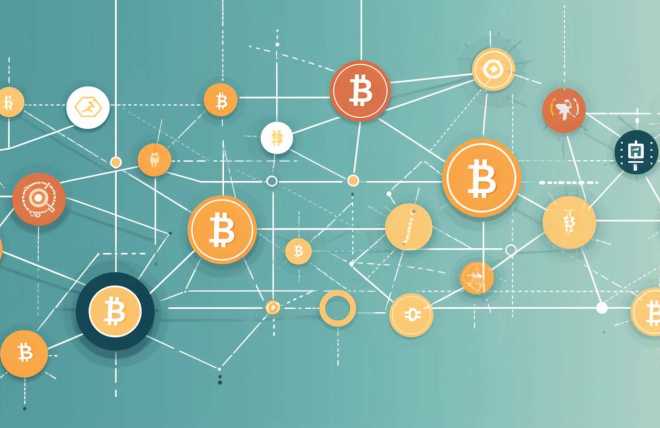Quantum Computing: Exploring the Future of Computing
Discover the Power of Quantum Computing
Understanding Quantum Computing: A Beginner's Guide
Quantum computing is a revolutionary field that has the potential to transform the way we process and analyze data. It is a cutting-edge technology that operates on the principles of quantum mechanics and is vastly different from the classical computing we are used to. In this beginner's guide, we will explore the basic principles of quantum computing, its advantages and challenges, hardware, applications, and the future of quantum computing.
Basic Principles of Quantum Computing
Quantum computing operates on quantum bits, or qubits. Unlike classical bits, which can only exist in two states - 0 and 1 - qubits can exist in multiple states at the same time. This property is called superposition and is one of the fundamental principles of quantum computing. Another principle is entanglement, which allows two or more qubits to be connected in a way that their states are always correlated, regardless of the distance between them.
The Advantages of Quantum Computing
Quantum computing offers several advantages over classical computing. One of these advantages is parallelism, which allows quantum computers to perform multiple computations simultaneously. This means that quantum computers can solve problems much faster than classical computers. Quantum algorithms are also another advantage of quantum computing. They are designed to take advantage of the unique properties of qubits, making them much faster and more efficient than classical algorithms.
The Challenges of Quantum Computing
Despite its advantages, quantum computing also faces several challenges. One of the biggest challenges is quantum decoherence, which refers to the loss of quantum information due to interference from the environment. Another challenge is error correction, which is necessary to maintain the accuracy of quantum computations. These challenges are being addressed by researchers through the development of new hardware and software.
Quantum Computing Hardware
Quantum gates and quantum circuits are the building blocks of quantum computing hardware. Quantum gates are similar to classical logic gates, but they operate on qubits instead of classical bits. Quantum circuits are composed of a series of quantum gates and are used to perform specific computations. Quantum processors, such as the ones developed by IBM and Google, are used to execute quantum circuits.
Quantum Computing Applications
Quantum computing has several potential applications, including cryptography, optimization, and simulation. Quantum cryptography is a technique that uses quantum mechanics to ensure secure communication. Quantum optimization is used to find the best solution to complex problems, such as scheduling and logistics. Quantum simulation is used to model complex systems, such as molecules and materials.
Future of Quantum Computing
Quantum computing is still in its early stages of development, but researchers are making significant progress in improving hardware and software. As the technology advances, it has the potential to revolutionize industries such as finance, healthcare, and energy. Quantum computing could also have a significant impact on scientific research, allowing us to model complex systems and analyze data in ways that were previously impossible.
Conclusion
Quantum computing is a complex and fascinating field that has the potential to transform the way we process and analyze data. Despite facing several challenges, researchers are making significant progress in improving hardware and software. Quantum computing has several potential applications and could revolutionize industries and scientific research. As the technology advances, it will be exciting to see the impact it has on our world. If you are interested in learning more about quantum computing, there are several resources available online that can help you get started.

I think quantum computing is probably a good thing, because we need to continue pushing forward the boundaries of what we can do.
Faq
- Q: What is quantum computing?
A: Quantum computing is a field of computing that operates on the principles of quantum mechanics. It uses qubits instead of classical bits to perform computations. - Q: How is quantum computing different from classical computing?
A: Quantum computing is vastly different from classical computing in terms of how it processes and analyzes data. Unlike classical bits, which can only exist in two states (0 and 1), qubits can exist in multiple states simultaneously. This property, known as superposition, allows quantum computers to perform computations much faster than classical computers. - Q: What are the potential applications of quantum computing?
A: Quantum computing has several potential applications, including cryptography, optimization, and simulation. Quantum cryptography is a technique that uses quantum mechanics to ensure secure communication. Quantum optimization is used to find the best solution to complex problems, such as scheduling and logistics. Quantum simulation is used to model complex systems, such as molecules and materials.
Pros and Cons
Pros:
- Quantum computing is much faster than classical computing
- Quantum algorithms are more efficient than classical algorithms
- Quantum computing has the potential to revolutionize industries such as finance, healthcare, and energy
- Quantum computing could lead to new discoveries in scientific research
- Quantum computing is a rapidly advancing field with significant investment and research being conducted.
Cons:
- Quantum computing is still in its early stages of development
- Quantum hardware is expensive and difficult to build
- Quantum decoherence and error correction are significant challenges that must be addressed
- Quantum computing may require new software and programming languages
- There is a shortage of experts in the field of quantum computing.
Resources
-
IBM Quantum Experience - This is a cloud-based platform that allows users to experiment with real quantum hardware and simulators. It also includes educational resources to help beginners learn more about quantum computing.
-
Microsoft Quantum Development Kit - This is a free, open-source development kit that includes tools for developing and simulating quantum applications.
-
Quantum Computing for the Very Curious - This is a free online book that provides an introduction to quantum computing, written for those with little or no background in physics or mathematics.
-
Quantum Computing Stack Exchange - This is a community-based question and answer site where users can ask and answer questions related to quantum computing.
-
Quantum Computing Report - This is a news and analysis website that provides updates on the latest developments in the field of quantum computing.

